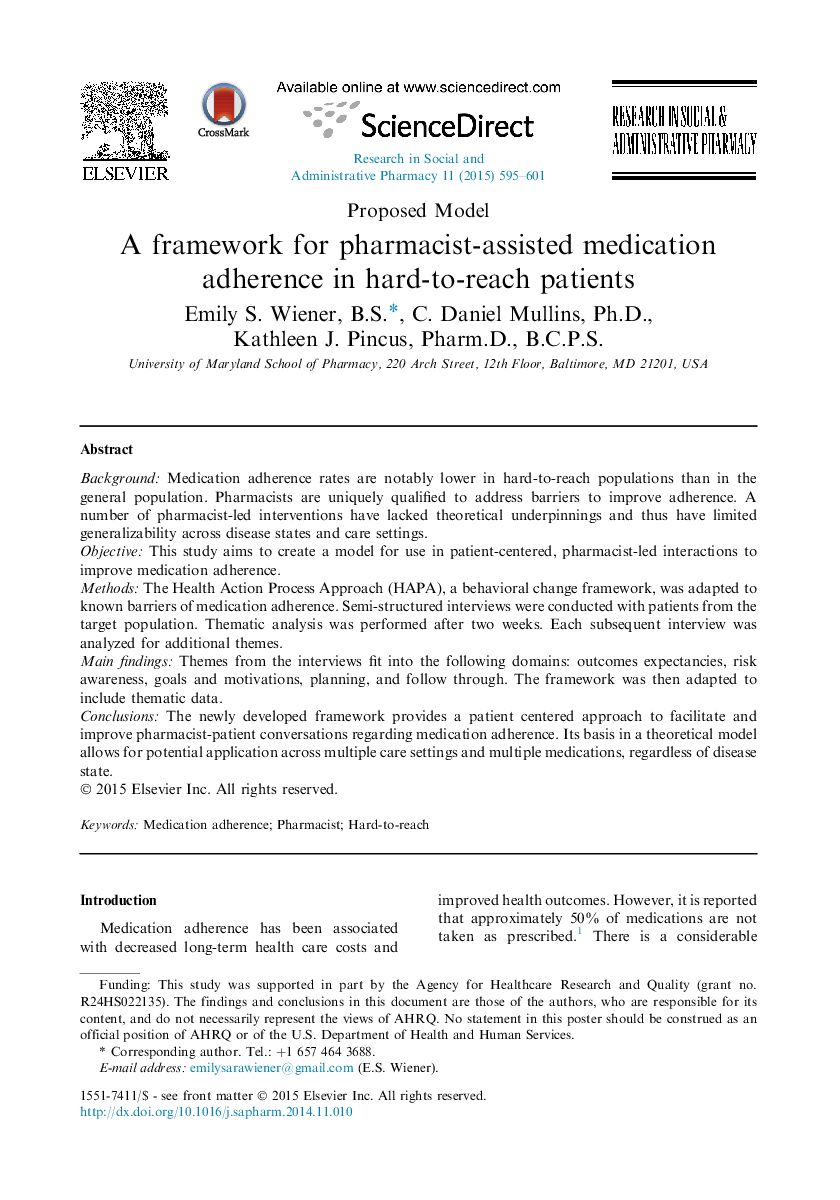| Article ID | Journal | Published Year | Pages | File Type |
|---|---|---|---|---|
| 2508282 | Research in Social and Administrative Pharmacy | 2015 | 7 Pages |
BackgroundMedication adherence rates are notably lower in hard-to-reach populations than in the general population. Pharmacists are uniquely qualified to address barriers to improve adherence. A number of pharmacist-led interventions have lacked theoretical underpinnings and thus have limited generalizability across disease states and care settings.ObjectiveThis study aims to create a model for use in patient-centered, pharmacist-led interactions to improve medication adherence.MethodsThe Health Action Process Approach (HAPA), a behavioral change framework, was adapted to known barriers of medication adherence. Semi-structured interviews were conducted with patients from the target population. Thematic analysis was performed after two weeks. Each subsequent interview was analyzed for additional themes.Main findingsThemes from the interviews fit into the following domains: outcomes expectancies, risk awareness, goals and motivations, planning, and follow through. The framework was then adapted to include thematic data.ConclusionsThe newly developed framework provides a patient centered approach to facilitate and improve pharmacist-patient conversations regarding medication adherence. Its basis in a theoretical model allows for potential application across multiple care settings and multiple medications, regardless of disease state.
